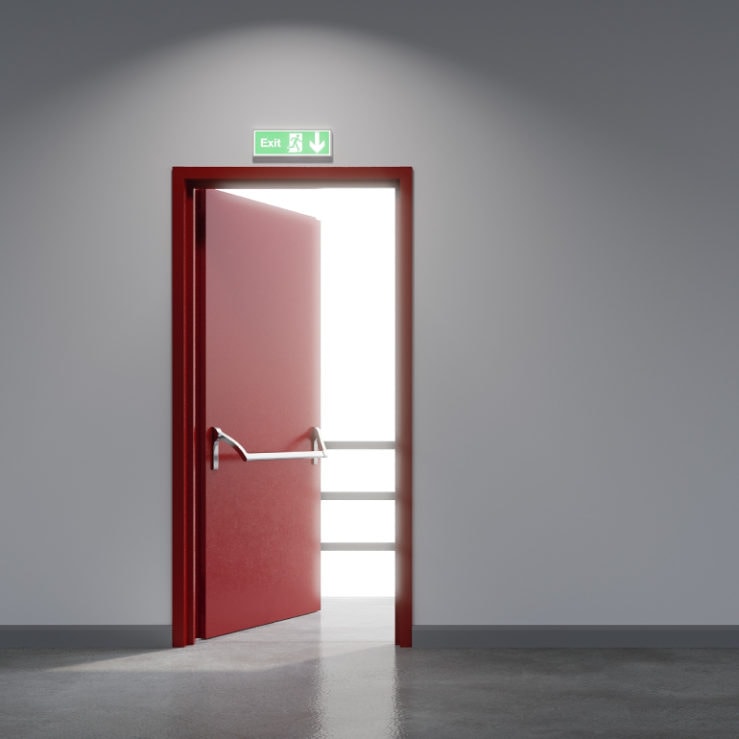Fire door sets play a crucial role in preventing the spread of fire, smoke, and hot gases in commercial buildings, and we looked into this critical topic in a recent blog.
But as your fire safety compliance partner, at Commercial Fire Protection we also want to make you aware of how important it is that those fire door sets are installed properly, too.
Below, we look at the questions you should ask of a fire door installer – and the responses you should expect from them – to be confident that your fire door installation is compliant.
What qualifications should a fire door installer have?
While there is no single, formal qualification legally required to install fire doors, UK fire safety legislation—such as the Regulatory Reform (Fire Safety) Order 2005—makes it clear that all fire safety work must be carried out by a competent person.
In other words, if an installer can’t provide clear evidence of their competence, that’s a red flag.
This is where third-party industry certification schemes become essential. They bridge the gap left by the lack of a specific qualification and offer reassurance that the installer meets recognised standards.
There are a number of third-party fire certifications in the UK, but one of the most respected is the BM TRADA Q-Mark Scheme.
Widely regarded as the gold standard in the industry, this certification not only covers installation of the door sets, but also fire stopping and ongoing fire door inspections. Always ask your installer to show proof of certification from a recognised scheme like this—it’s one of the best ways to ensure the job is done safely and compliantly.
Why BM Trada Q-Mark Scheme certification matters
BM Trada Q-Mark Scheme certification is not only rigorous, but also closely and repeatedly policed.
It involves a two-phase audit, with at least one phase on site. Certification is maintained through a planned programme of audit checks followed by a re-certification audit in the year before certification expires.
A BM Trada Q-Mark Scheme-certified fire protection company will display the certification mark on its website and other communication and documents, and will be able to produce a current certificate when you request it.
You can see our full BM Trade certifications here.
Aside from this scheme, there’s also a British Standard BS 8214: 2016 accreditation that fire door installers can undertake, but it’s only valid for timber-based fire door sets; other materials aren’t covered.
Look beyond installation
However, it’s not just fire door installation that can let a fire door set down and cause dangerous non-compliance – there are other aspects you need to take into account.
Our fire door inspection solutions, for example, are absolutely key here. We thoroughly examine your fire door sets to identify any damage, wear, or non-compliant installation, modifications or repairs.
Prevention is always better and more cost-effective than cure, which makes fire door inspections essential – nothing last forever! Regular inspection and timely maintenance isn’t just good practice, it is a legal obligation. Staying on top of them can also save you the expense of a complete door set replacement.
Insist on experience
Our BM Trada Q-Mark scheme certifications cover every stage of a fire door set’s operating lifecycle, so you can be sure our fire engineers will guarantee your fire doors’ ongoing compliance.
But experience is also an essential ingredient in a fire door installer’s skill set, and one you should ask about.
At Commercial Fire Protection, our four decades of experience mean we’ve dealt with every type of fire door in every setting – defence, life sciences, offices, industrial, retail, residential, healthcare, education, and more.
Contact us today to find out more about how we can help you with your fire doors – and request your copy of our FREE Guide to Fire Protection Compliance here.




